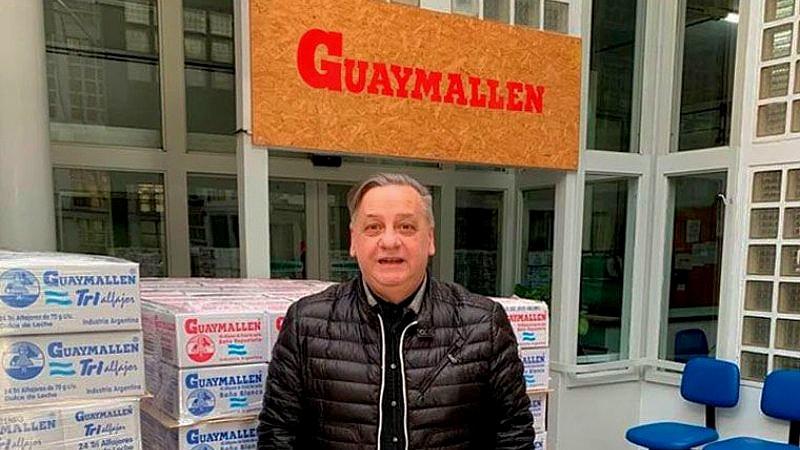They call it "caviar" but it is available to everyone in the kiosks at a popular price. The alfajor is one of the flagship sweets of Argentines and within that segment the Guaymallén is the best-selling brand. Its history began more than 70 years ago with an intuition, it grew with street sales and today it is positioned as an export product that seeks to grow and produce several million more units per year.
Ulpiano Fernández was a general broker until one day, bored with his job, he decided to resign. They say that walking through Constitución, together with his wife, he saw a seller of handmade alfajores and had an enterprising epiphany. Until then, alfajores were a confectionery product and it was little industrialized.
Fernández joined his brother-in-law, who was a confectioner, and they started a modest plant in 1945. Why Guaymallén? The founder of the company was in love with the province of Mendoza and used to visit it, so, in a way, it was a tribute to his fanaticism for the land of good wine.
The business escalated and in 1972 they opened their plant in Mataderos, which still continues today as their main production plant. There they make about 2 million units per day and more than 200 people work. But it was only in the 1980s that it gained popularity when it became a fetish product for street vendors.

This is how the Guaymallén became the most consumed alfajor in the country, according to data from Infokioscos, surpassing Jorgito and Fantoche, two other historic ones in the segment. The firm based its strategy precisely on its economic price. "High volume, low profitability" became the main rule of the company.
Going viral in Las Vegas
After the departure of Ulpiano Fernández, her daughter, Cristina, together with her husband, Néstor Hugo Basilotta, took over the day-to-day command, who became the visible face of Guaymallén.
In particular, Basilotta stood out for his histrionics on social networks (he has 91,300 followers on Twitter and almost 34,000 on Instagram), where he uploads humorous videos about the brand. There he gave way to chicaning Donald Trump, then president of the United States, and even joked about the blue dollar and the green dollar, making a reference to the color of the labels on his alfajores.
The brand's link to the sport spanned decades. In the 1950s, he installed a sales stand on the Racing field, which was heading for the three-time championship, and was also part of the All Boys jersey. However, his most remembered appearance must be the one in 2014 when Marcos "Chino" Maidana ate a Guaymallén before 30 million spectators after having fought 12 rounds with Floyd Mayweather. Returning to the round, last year Basilotta assured that he had the intention of presenting himself as a candidate for president of Vélez, the club of his love.
Years passed and the company did not stop growing. In February 2021, it made its first export to the United States and a few months later it announced that it was finalizing details to arrive in Italy. Cristina Fernández and Néstor Hugo Basilotta continue to lead, although now accompanied by their four children: Florencia, Hugo (h), Julieta and Lorena.
However, the big project for 2021 is to open its new factory in Carlos Spegazzini with an investment of US$3 million. This 5,000-square-meter plant will allow them to produce 1 million more alfajores per day and incorporate 100 workers.


